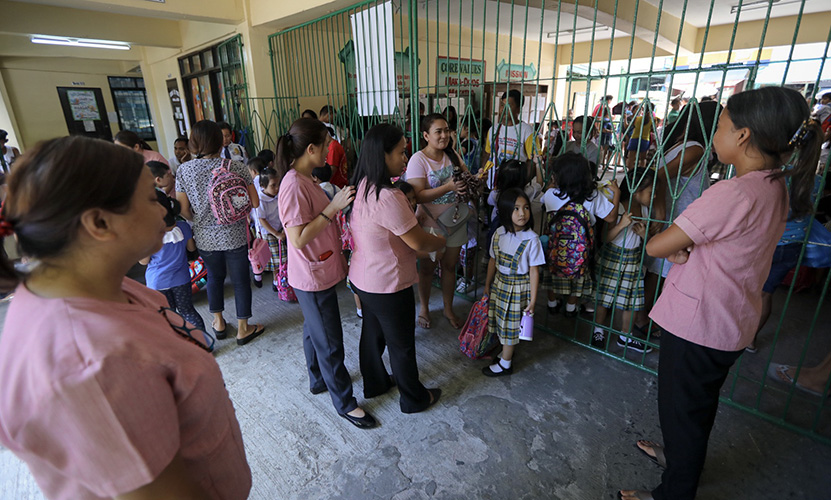Senator Win Gatchalian is eyeing an oversight review on the challenges hounding the Teacher Education Council in improving the quality of the country’s teachers.

The Teacher Education Council was established in 1994 through Republic Act No. 7784 to strengthen the education and training of the country’s teachers. One of the Council’s major functions is designing collaborative programs or projects that will enhance pre-service teacher training, in-service training, re-training, orientation, and teacher development. The Department of Education (DepEd) Secretary is the Council’s ex-officio chair.
But despite the Council’s creation, the Department of Education (DepEd) only takes part in teachers’ in-service education and training through its professional development arm the National Educators Academy of the Philippines (NEAP), which upskills and reskills teachers.
The lawmaker raised that administration of teachers’ pre-service education is largely under the Commission on Higher Education (CHED) and the Teacher Education Institutions. Pre-service refers to the training before they become classroom teachers and in-service refers to those working as teachers.
Gatchalian said there is a need to strengthen the link between the pre-service and the in-service trainings of teachers, emphasizing that it is equally pressing to focus on the quality of teachers as the education system enters the new normal where discussions should not only focus on the alternate methods of learning delivery amid the COVID-19 pandemic.
Results of the World Bank’s Philippines Public Education Expenditure Tracking and Quantitative Service Delivery Study (PETS-QSDS) showed that elementary and high school teachers are not equipped to teach considerable portions of the K to 12 curriculum. With the exception of English elementary teachers, the average elementary or high school teacher could correctly answer fewer than half of questions on subject content tests.
Gatchalian reiterated that if teachers are ill-equipped to teach the current curriculum, student performance will continue to decline. He pointed to the results of the 2018 Programme for International Student Assessment (PISA), which revealed that out of 79 countries, the Philippines ranked lowest in Reading Comprehension and second lowest in both Science and Mathematics.
Gatchalian said there is a need to identify the gaps in the Teacher Education Council’s capacity to synchronize teachers’ education and training with the demands of the K to 12 curriculum. If necessary, Gatchalian said he will propose amendments to the law to empower DepEd’s role in teachers’ pre-service education.
“Nais nating suriin ang mga hamong kinakaharap ng Teacher Education Council upang masigurong handa at may sapat na kakayahan ang ating mga gurong turuan ang ating mga kabataan, lalo na’t papasok ang ating sistema ng edukasyon sa tinatawag nating new normal. Hangga’t hindi natin naiaangat ang kalidad ng ating mga guro, wala ring magbabago sa kakayahan ng ating mga mag-aaral,” said Gatchalian.


